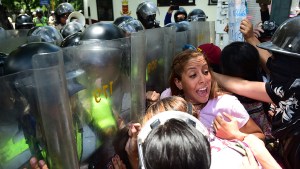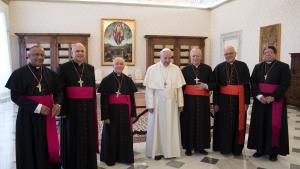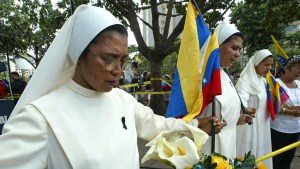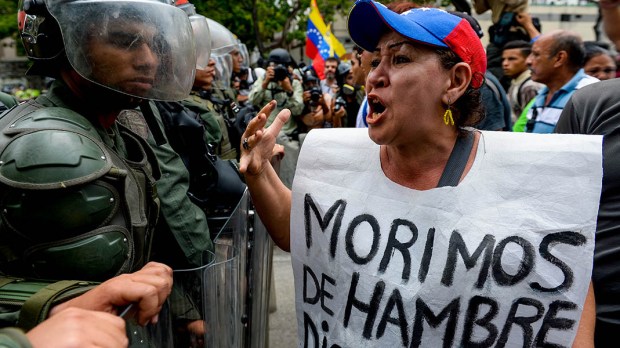Since beginning his pontificate, Pope Francis has been particularly involved in internal matters of his home continent. For example, his influence played a decisive role in the reestablishment of relations between Cuba and the United States in 2014. In Colombia, he put all his weight behind the reaching of an agreement between the government and the FARC. As of today, he has not been able to repeat that kind of success in Venezuela.
Throughout 2016-2017, Pope Francis — and with him, the Vatican administration — has tried to work in favor of Venezuela, in the face of the deepening economic and political crisis. Pope Francis knows the country well, as does his Secretary of State, Cardinal Pietro Parolin. Parolin was the Apostolic Nuncio there from 2009 to 2013, and consequently was able to witness Hugo Chavez’s last years in power, and the election of his successor, Nicolás Maduro.
Back in the month of August 2016, Cardinal Parolin declared that the Holy See was willing to “contribute to the resolution of the crisis that afflicts Venezuela,” under condition that its intervention be requested by the concerned parties — namely, the ruling party and the opposition — and that they make “a firm decision to formally initiate dialogue.”
A “very positive” first encounter
The Holy Father became personally involved, and received President Maduro in a private audience on October 23. A week later, a first meeting for talks between the ruling party and the opposition took place in Caracas, in the presence of a mediator from the Holy See, Archbishop Claudio Maria Celli. He judged the meeting to have been “very positive,” while recalling the need to maintain this channel of dialogue.
But in December, a political leader accused the Holy See’s Secretary of State of taking the side of the opposition. A meeting that was supposed to be held in January was then cancelled: the dialogue would not be resumed. Cardinal Jorge Liberato Urosa Savino, archbishop of Caracas, then stated that the Venezuelan government had “mocked the Vatican and the Church” by declaring that it wanted to continue to dialogue at the same time as taking measures to the contrary. At first, it looked like the Holy See had accepted failure.

Read more:
Venezuela devolves into chaos as leader tries to change constitution
In Venezuela, the situation was degenerating, and nearly every day protesters died in confrontations with the police. The country’s bishops denounced the ruling regime’s actions almost daily. They then were the target of diatribes by government officials, and some religious services were interrupted. The Holy See then came back into play, first of all by affirming its support after these disturbances.
“The government has become dictatorial.”
On May 5, Pope Francis himself wrote to the bishops, urging them to “do everything possible” to bring an end to the crisis. On June 8, he received the leaders of the Episcopal Conference of Venezuela in an audience. The prelates declared to the pope that “the government has become dictatorial.” (In fact, on Sunday, the archbishop of Caracas, Cardinal Jorge Urosa Savino, was trapped with the faithful inside a church where he celebrated Mass on the feast day of Our Lady of Mt. Carmel. Pro-Maduro demonstrators kept the faithful and the cardinal inside the church for some hours.”

Read more:
Pope Francis stands united with Venezuelan Bishops amid national crisis
For its part, the government continues with its accusations against the bishops, and asserts that it is actually the party supported by the Holy See.
For the moment, the Holy See’s efforts have not yet been able to reinitiate dialogue between the parties in conflict. Nonetheless, the Vatican continues its consultations, as when Cardinal Parolin received 10 former heads of state of South America last June 23. And the pope regularly makes appeals for prayer for Venezuela, as he did just last Sunday after praying the midday Angelus.

Read more:
Prayer for Venezuela
© 2017 I.MEDIA

